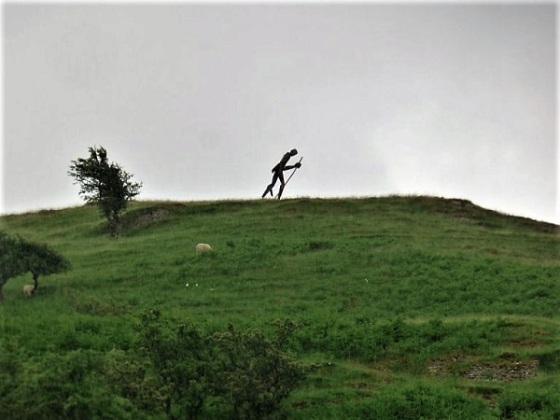
Photo prompt: Sue Vincent
“I’ll take you to the place,” she promised.
“The place where you came from?” the boy pressed. “Your before home?”
“If it is still there,” she nodded, her eyes clouding over with something between wistfulness and worry.
She watched his eyelids flutter as he curled onto his side and into sleep. There was much to do and little time for it, and still she couldn’t bring herself to rise from his cot. It wasn’t how she thought it would be. It felt too soon. He didn’t know a thing.
Not that she really had a choice, anyhow.
The place. She wasn’t sure exactly what would happen when they got there, or what it would mean to her or to the boy she was entrusted to protect. What would her protection of him entail now that she’d been discovered?
She gazed at the child. He was hers. At least as far as one could belong to someone else, he was.
Most people thought they could not look more different than each other. Her translucent skin to his ebony, her pale eyes to his endless pools of black, her sprinkling of wispy flaxen hair to his rich dark mane. She’d kept his hair in cornrows for tidiness and practicality, but often enough she coaxed him to let her undo them so his hair rose in a magnificent halo about his head. Her princely lion of a child. They didn’t have such locks where she’d come from. He truly was one of a kind.
“Adopted?” nosier people would ask what many others thought but didn’t dare to verbalize.
“In a way,” she’d respond, knowing full well that the answer raised more questions, yet she refused to lie. For he wasn’t. Adopted. Not in the way they’d think.
He was. Just. Hers. Seeded in her before she even understood what he was or would become.
And they were as alike as any, anyhow, considering where she was really from.
A noise jarred her and she looked up to see a mouse scurry across the cabin floor. It reminded her of other footsteps: dangerous and inevitable and far less welcome.
She got up and as the night deepened she did what had to be done. Finally she secured a small bag to her bike and hoisted the still sleeping child into her lap. She wrapped a strip of sheet around them so he could remain snug against her while she pedaled.
She rode through the woods till morning lit the trees and the birds fleeted ahead of her wheels and small living things skittered into the bushes to avoid her.
They knew, she thought, that she was not of them, and neither was the boy who nestled, oblivious, with a head atop her breast.
There would be no hiding who they were. Not anymore.
The light intensified to shine beyond the sun.
There it was. The place. The bright beam.
She dismounted and her legs shook not from hours of pedaling, but from knowing.
And from failure.
She let herself be found out before he was adult enough to continue. She did not protect him long enough to fulfill the promise he held for their kind.
The ship’s beam wavered and the gears in her heart thudded as the light shimmered sorrow through her skin.
They’ll take only him.
For Sue Vincent’s WritePhoto Challenge












You must be logged in to post a comment.